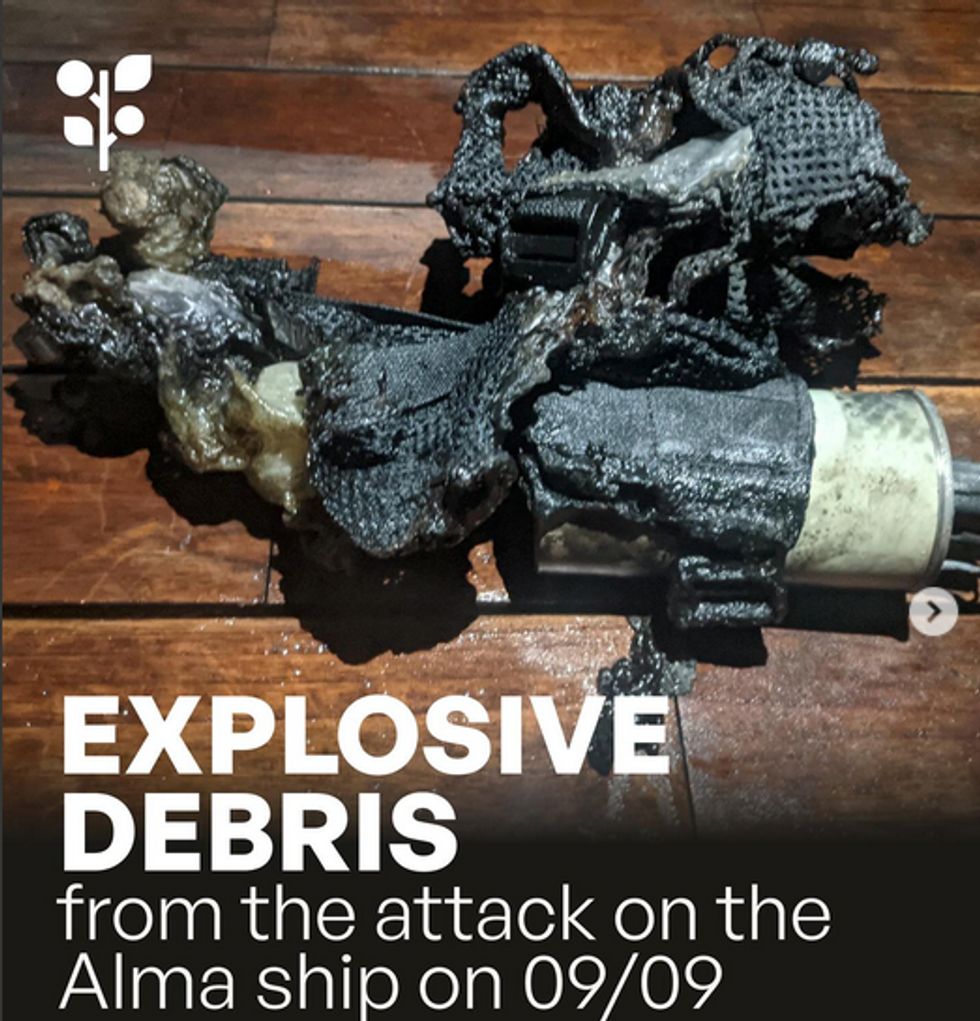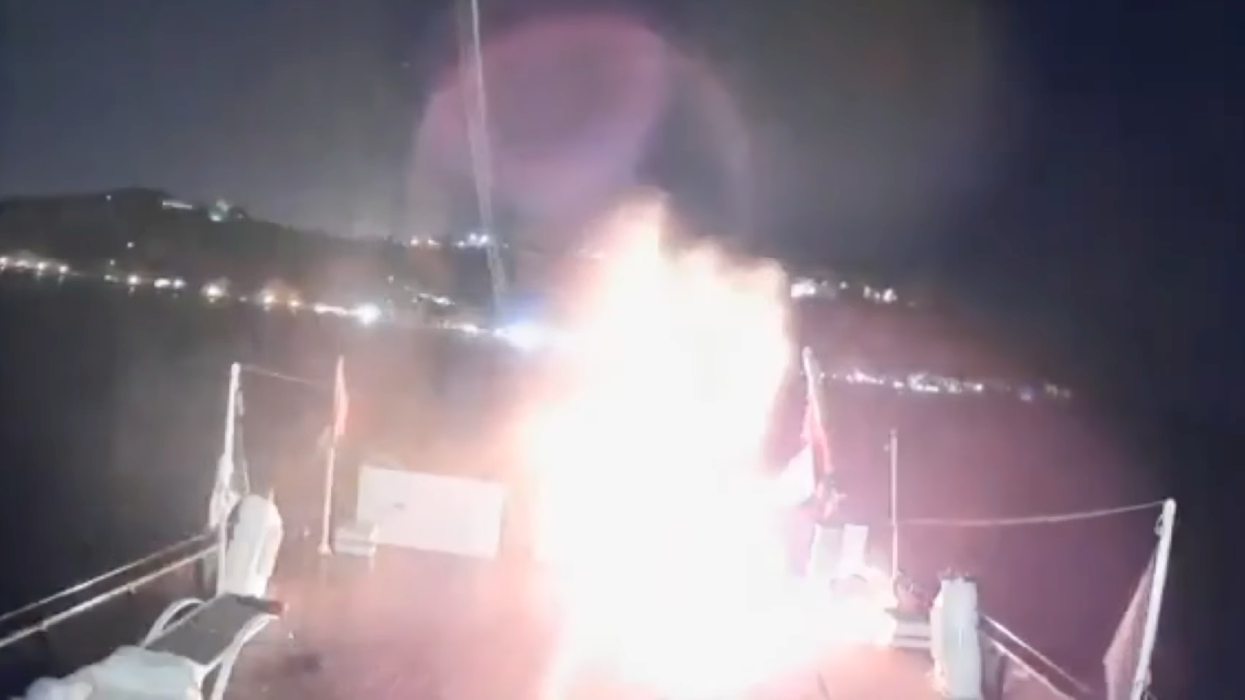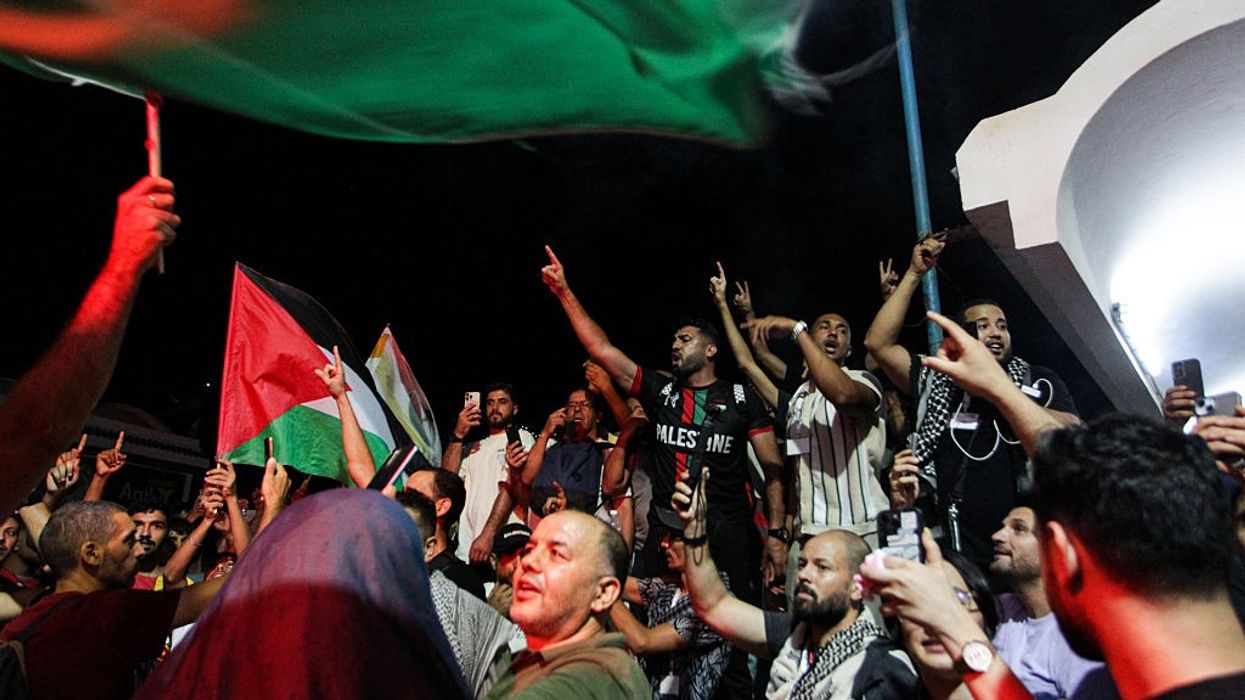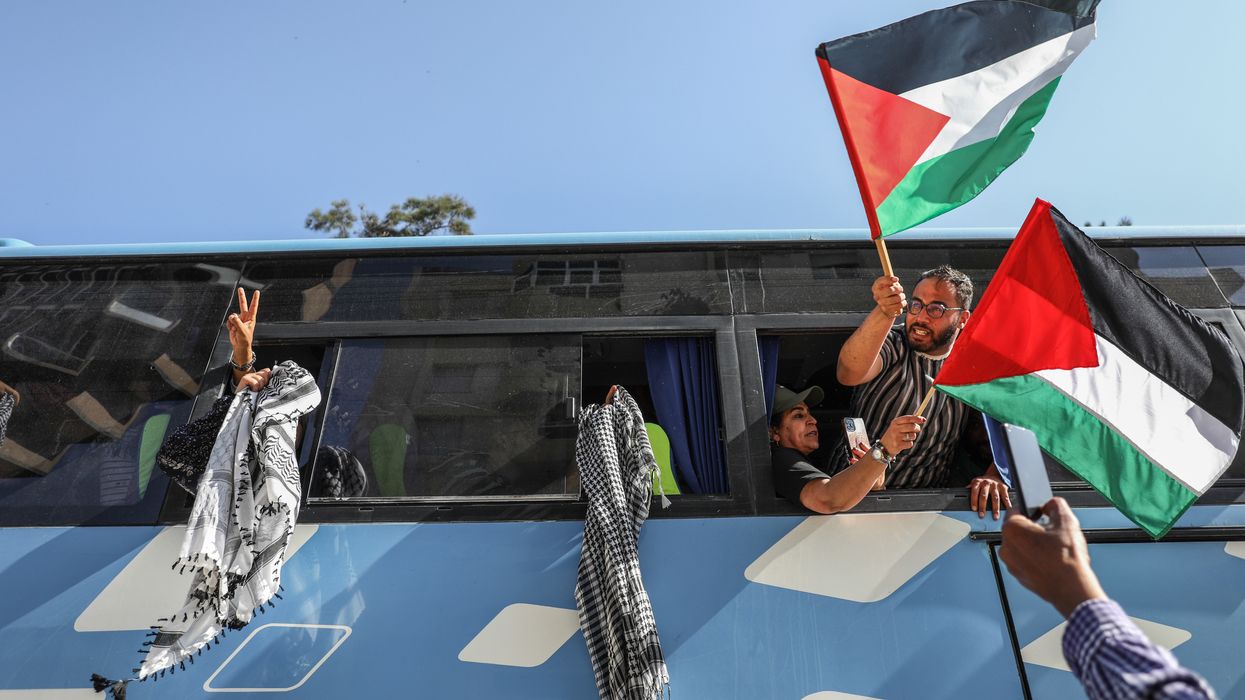'We Will Not Stop,' Says Gaza Sumud Flotilla After Second Drone Attack
"Our peaceful voyage to break Israel’s illegal siege on Gaza and stand in unwavering solidarity with its people presses forward with determination and resolve."
The Global Sumud Flotilla bound to break the humanitarian siege on Gaza imposed by the Israeli government confirmed one of its boats overnight was attacked by a drone armed with an incendiary device while anchored off the coast of Tunisia, the second such assault in two days.
The group said a boat named the Alma, which is sailing under the British flag, "sustained fire damage on its top deck" before the flames were extinguished and that all aboard passengers were safe and accounted for. A separate boat, the Family, was struck approximately 24 hours earlier in a similar attack.
Footage taken from a security camera aboard the vessel shows the moment just before the strike occurs with a member of the crew nearly struck as a ball of fire hurls down on the deck:
- YouTube www.youtube.com
Following the attack, crew members of the Alma say they found the charred charred remains of an electronic device on the deck of their ship and posted a picture of it online:

In a statement, the international group behind the GSF effort, said in a social media post that while "a full investigation is ongoing, the presence of such a device provides further indication that the boat was deliberately targeted."
Following the attack, members of the GSF steering committee, issued a video explaining the nature of the attack and why it would not deter them from continuing their journey to bring life-saving supplies to Gaza and draw international attention to the carnage happening there on the ground with no end in sight.
"We know it's outrageous," said one member, Thiago Ávila, of the attack, "but it's nothing compared to what they are doing to the Palestinians in Gaza every single day. That's why we need to continue going. That's why we are prepared and we will set sail, because we know its in the hearts and the minds of the majority of the people on this planet. They cannot stand children being starved to death, hospitals being bombed, schools being bombed. And that's why we will continue to sail. We will not stop."
These repeat attacks, the group said in a separate statement, "come during intensified Israeli aggression on Palestinians in Gaza, and are an orchestrated attempt to distract and derail our mission."
"The Global Sumud Flotilla continues undeterred," the statement continued. "Our peaceful voyage to break Israel's illegal siege on Gaza and stand in unwavering solidarity with its people presses forward with determination and resolve."


